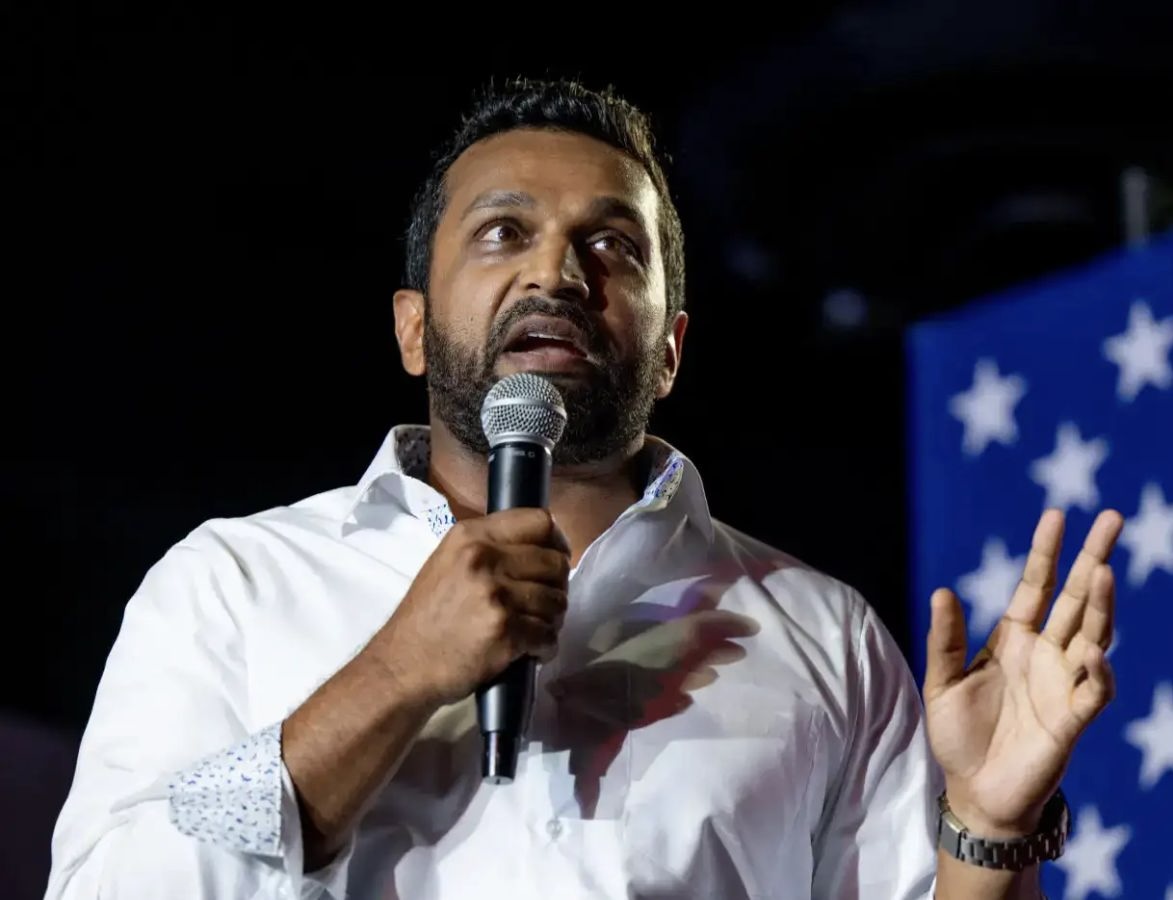Kash Patel Shocks the Nation with His Appointment as FBI Director—Don’t Miss His Remarkable First Statement
In a highly contentious decision, the U.S. Senate has confirmed Kash Patel as the new Director of the Federal Bureau of Investigation (FBI) for a 10-year term. Patel’s confirmation, secured by a narrow 51-49 vote on Thursday, marks a pivotal shift in leadership at one of the country’s most prominent law enforcement agencies. This appointment is seen by some as ushering in a new era for the FBI, but it has also sparked considerable debate regarding Patel’s qualifications and his potential impact on the agency’s future.
A Polarizing Figure
Kash Patel has long been a divisive figure in American politics. A former aide on the House Intelligence Committee and a staunch critic of government surveillance overreach, Patel has drawn both strong support and sharp criticism throughout his career. Known for his vocal opposition to what he describes as the “deep state” and his unwavering support for former President Donald Trump, his nomination has raised concerns among some about the potential for political bias within the FBI. Critics argue that Patel’s controversial views and political affiliations could undermine the impartiality expected of the nation’s top law enforcement officer.
Patel’s experience spans several key roles in Trump’s administration, including senior positions on Capitol Hill, work as a federal prosecutor, and service as a public defender. His extensive legal background, paired with his partisan track record, has led many to question whether his leadership will steer the FBI toward a more politically charged direction.
A Bold Vision for the FBI
Upon his confirmation, Patel wasted no time making his mark, issuing an inaugural message on X (formerly Twitter) that has drawn both praise and criticism. He expressed gratitude for the support he received from former President Trump and Attorney General Bondi, while emphasizing the FBI’s legacy of protecting the nation. Patel vowed to restore transparency, accountability, and trust in the agency, saying, “The American people deserve an FBI that is transparent, accountable, and committed to justice. The politicalization of our justice system has eroded public trust—but that ends today.” His message focused on returning the FBI to its core mission and rebuilding public confidence in its operations.
Patel also promised to take a tough stance against those who pose threats to national security, vowing to “hunt you down in every corner of this planet.” His aggressive rhetoric, while intended to project strength, has raised concerns about the tone it sets for his leadership and its potential to inflame divisions.
Internal Changes at the FBI
Patel’s appointment comes at a time of significant restructuring within the FBI. Since the new administration took office last month, there have been major personnel changes, including the appointment of an associate of Elon Musk to the agency, raising concerns about potential partisan influence. Additionally, key FBI officials have been reassigned, including the head of the Washington Field Office, which was responsible for investigating the January 6 Capitol riots, along with several senior leadership positions. These moves have fueled speculation about how Patel’s leadership will shape the future direction of the FBI.
Critics worry that Patel’s controversial past statements and political leanings might steer the agency away from its traditional role as an independent and impartial body. They fear that under his direction, the FBI could become more politicized, potentially eroding its credibility and undermining public trust.
Past Remarks Spark Controversy
Patel’s past remarks have also attracted significant attention. In a 2023 podcast interview, he made headlines by vowing to “shut down” the FBI headquarters and transform it into a “museum of the deep state,” and further stated that the FBI’s employees would be reassigned to “go chase down criminals” instead. Although Patel later clarified that his comments were taken out of context, these statements have raised concerns about his approach to the agency’s operations.
In a separate interview with Steve Bannon, Patel suggested that individuals in the media who he believed had helped “rig” the 2020 presidential election would be pursued legally. His comments about using the law to go after those he accused of wrongdoing have only deepened partisan divisions, with some fearing that such rhetoric could further politicize the FBI and compromise its independence.
Looking Ahead: The Future of the FBI
As Patel embarks on his 10-year term, the future of the FBI remains uncertain. His supporters view his appointment as a much-needed corrective to what they perceive as political overreach within the agency. They believe Patel’s leadership will restore integrity to the FBI and realign it with its core mission. However, for his detractors, Patel’s controversial views and aggressive rhetoric raise concerns that he may push the agency in a more partisan direction.
The coming months will be crucial in determining how Patel’s leadership will shape the future of the FBI. His ability to balance reform with the agency’s traditional commitment to impartial justice will be closely scrutinized. The actions he takes, both internally and externally, will play a significant role in defining his legacy as FBI Director.
In conclusion, Kash Patel’s confirmation as the new FBI Director represents a turning point for the agency. While his supporters see his leadership as a necessary change, his critics worry that his partisan views and aggressive rhetoric could further divide the nation and erode the FBI’s reputation. As Patel begins his tenure, the country will be watching closely to see how his leadership will influence the future of one of the nation’s most critical law enforcement institutions.
